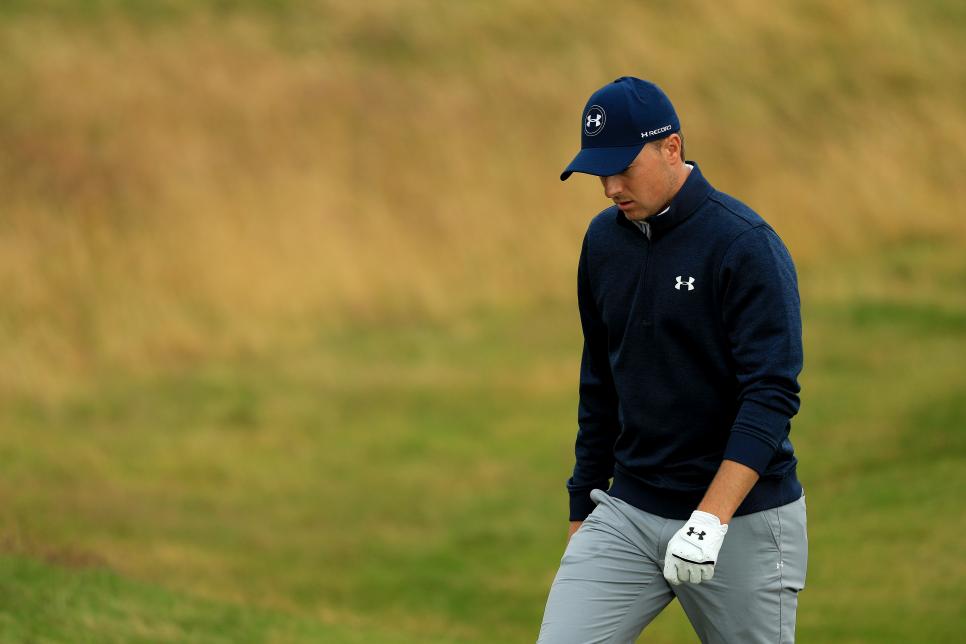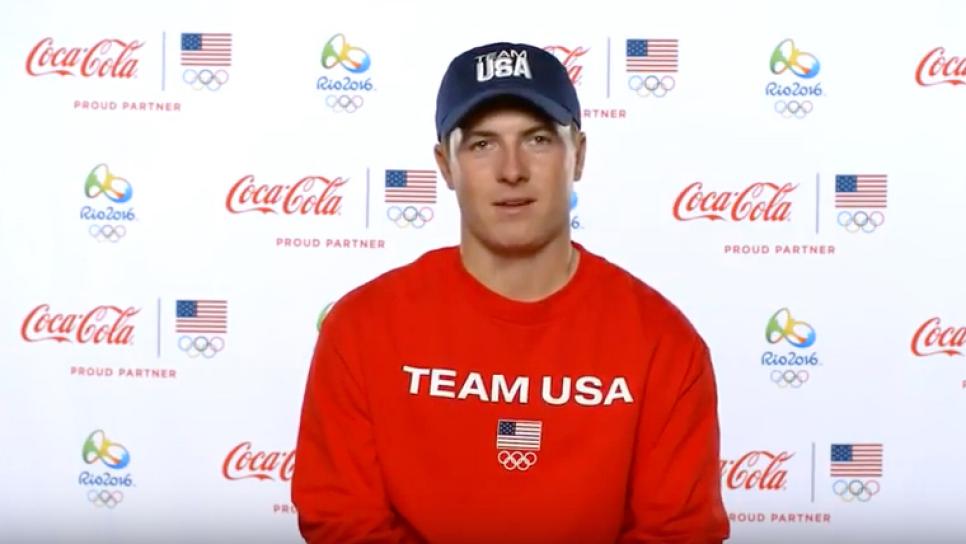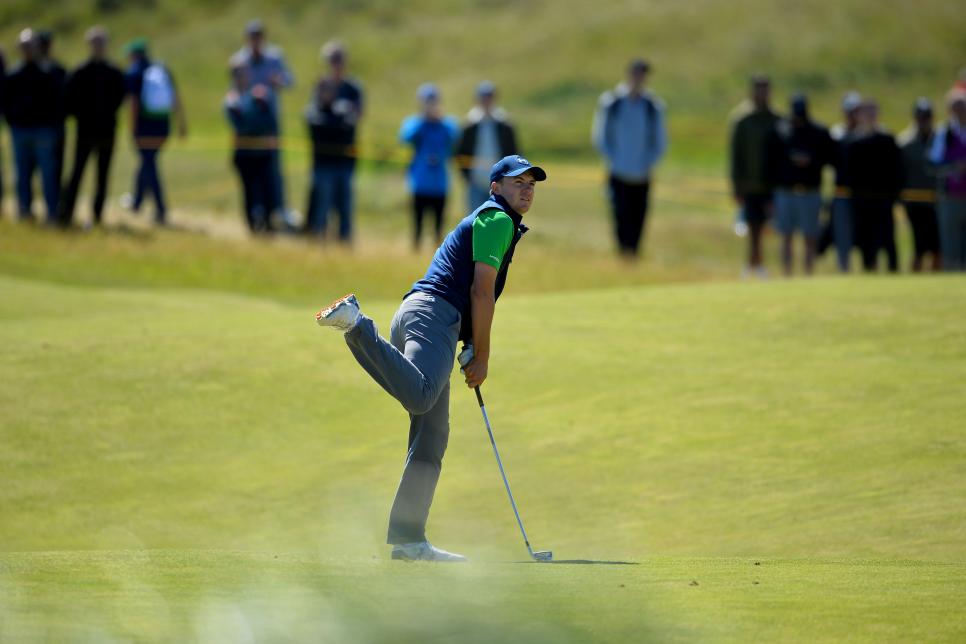The Loop
What really made Jordan Spieth's Olympic decision so difficult

Getty Images
TROON, Scotland -- On the Sunday night before the 145th Open Championship, Jordan Spieth still hadn’t made up his mind on the Rio Olympics.
After consulting for the last month with his team, the highest-ranked American golfer in the world (third overall) found himself sharing a house near Royal Troon with defending Open champion Zach Johnson, Rickie Fowler, Justin Thomas, Jimmy Walker and Jason Dufner. It was the last night Johnson would be in possession of the claret jug, so they drank from it before settling in for some serious conversation.
With the deadline for committing to the Olympics 24 hours away, Spieth called in his buddies as an 11th-hour sounding board. “The topic did arise,” Johnson said on the practice ground at Troon. “Not one of us told him what to do, because none of us are in his shoes.”
This was the same house where Fowler tweeted a night earlier that he couldn’t wait to represent the red, white and blue. On the other hand, the highly respected Johnson -- had he been eligible -- said he would have opted out of Rio, for reasons he would not discuss.

Spieth was under more pressure than either. He is the 2015 Masters and U.S Open champion, the kid on the Coca-Cola cans and the AT&T commercials, the American poster boy for golf.
“What I told him is that either way, you don’t have to justify it,” Johnson said.
Spieth arrived at the course last Monday still not knowing what he would do. He was leaning toward not playing, and with the deadline approaching he stayed true, not flip-flopping like this year’s U.S. Open champion Dustin Johnson.
“So no, they didn’t have an effect on me,” Spieth said of his counterparts. “I had to make the decision just me.”
The tone of Spieth’s news conference at Troon was heartfelt, but he clearly was conflicted. The 22-year-old said it was the hardest decision in his life. Tougher than choosing a college, or deciding whether to leave the University of Texas to turn pro.
Why was it so hard? Because he is a huge believer in Olympic golf and in his country, and because he has played sports all his life and loves the Olympics and had been talking up how much he wanted to go. Before his career is over, he hopes to compete in four or five Olympic games.

AFP/Getty Images
So he could understand the skepticism about his decision. Spieth pushed back on suggestions that it was about the Zika virus, saying it was more “health concerns.” He implied there were more serious considerations -- probably involving security issues -- that he couldn’t talk about.
Spieth also considered the importance of golf being in the Olympics for the first time since 1904. And what athletes from other sports said about the Olympic experience. “I certainly was not trying to wait until the last minute,” Spieth said. “I couldn’t make a decision and then I had to by the last deadline.” In the end, he went with his gut.
Perhaps the process was a distraction. Spieth struggled at Troon, making the cut on the number and finishing T-30. He goes to the PGA Championship at Baltusrol for his last chance at a 2016 major. And he has decided not to use the week of the Olympics to defend his title at the John Deere Classic; playing might be interpreted as being disrespectful to the Games.
Instead, Spieth said it will be “a big bummer” watching the opening ceremonies in Rio, where Fowler, Bubba Watson, Patrick Reed and Matt Kuchar will be the men representing the USA.
Fowler has already texted how jealous Spieth will be when he wins the gold.